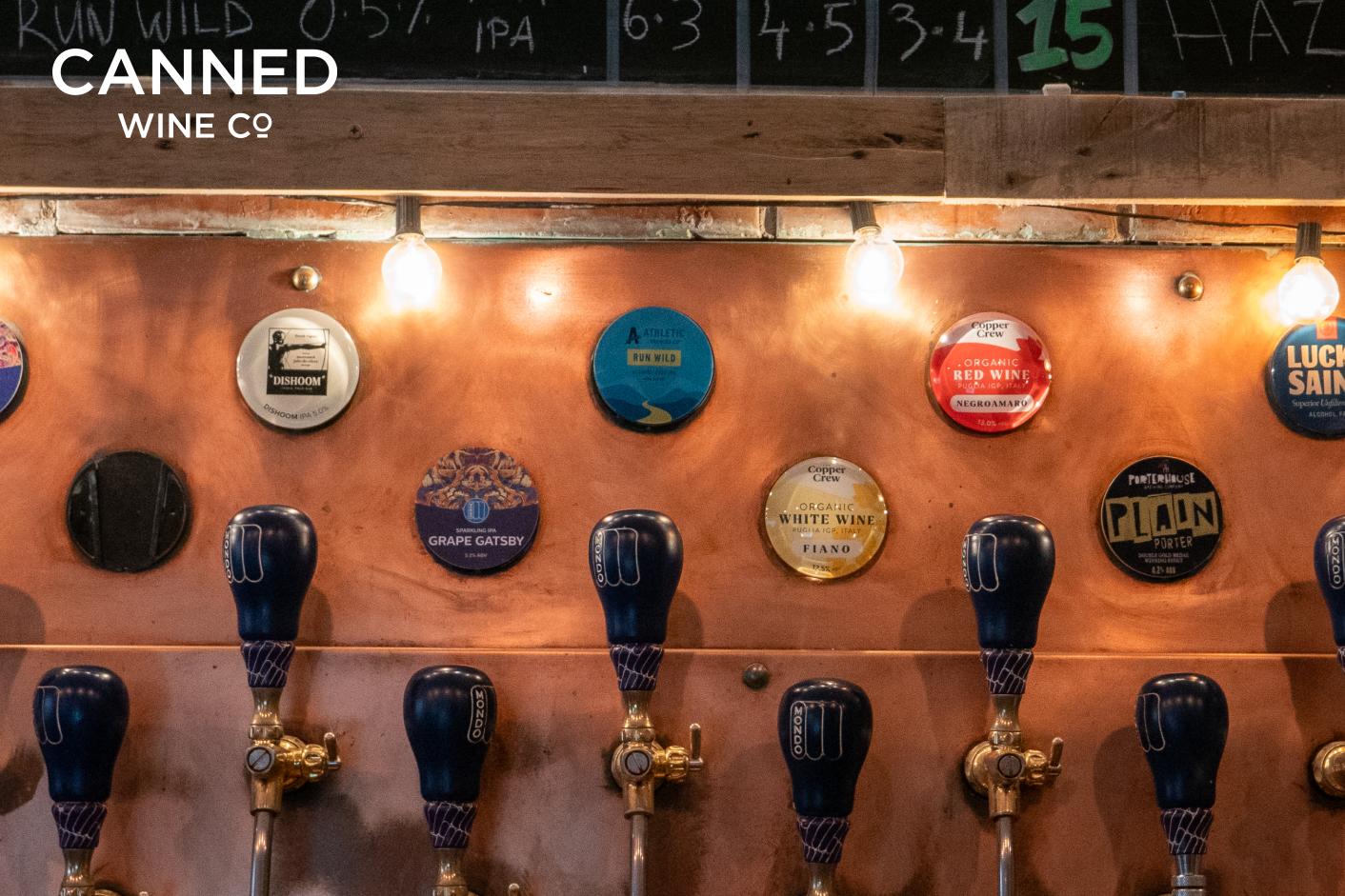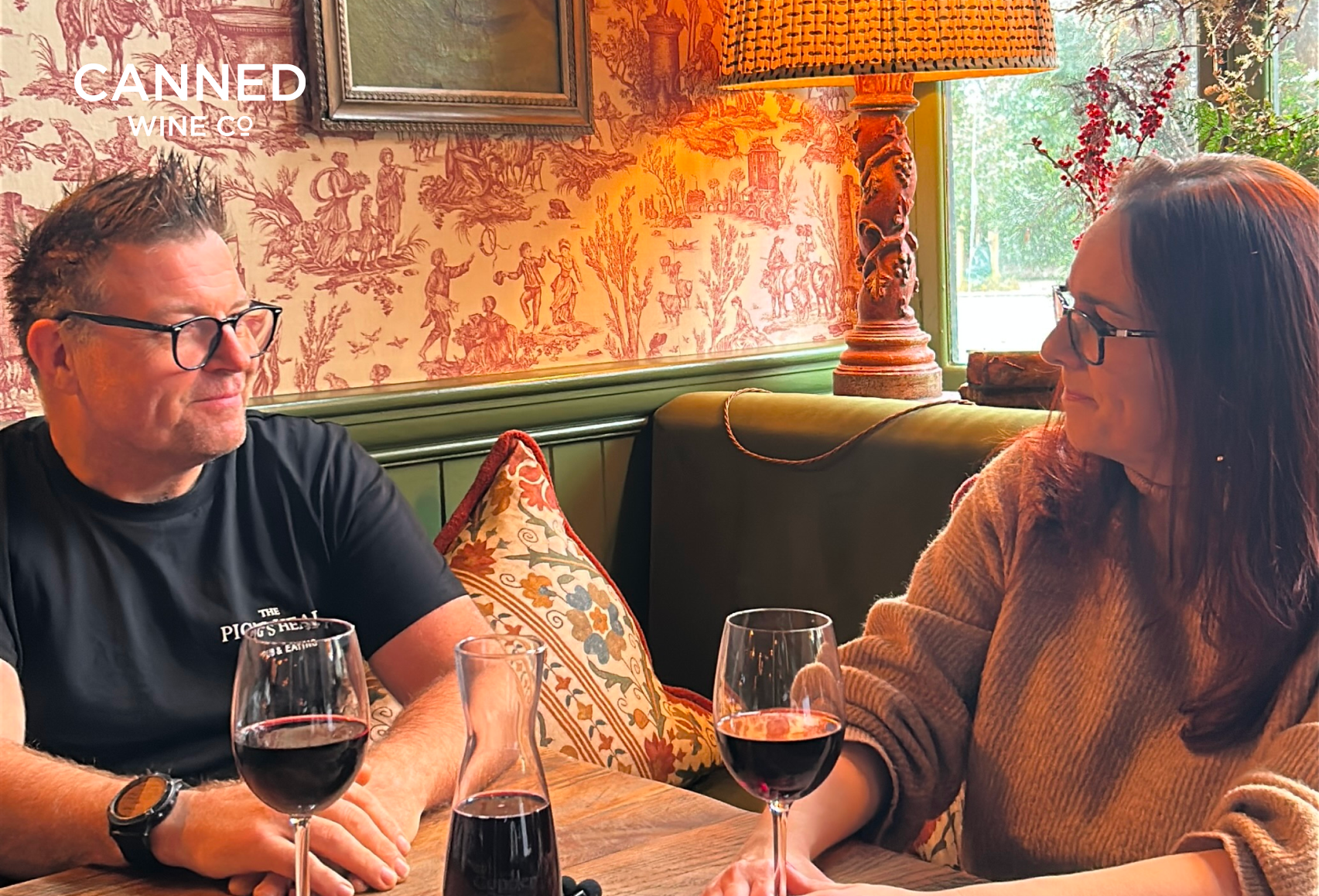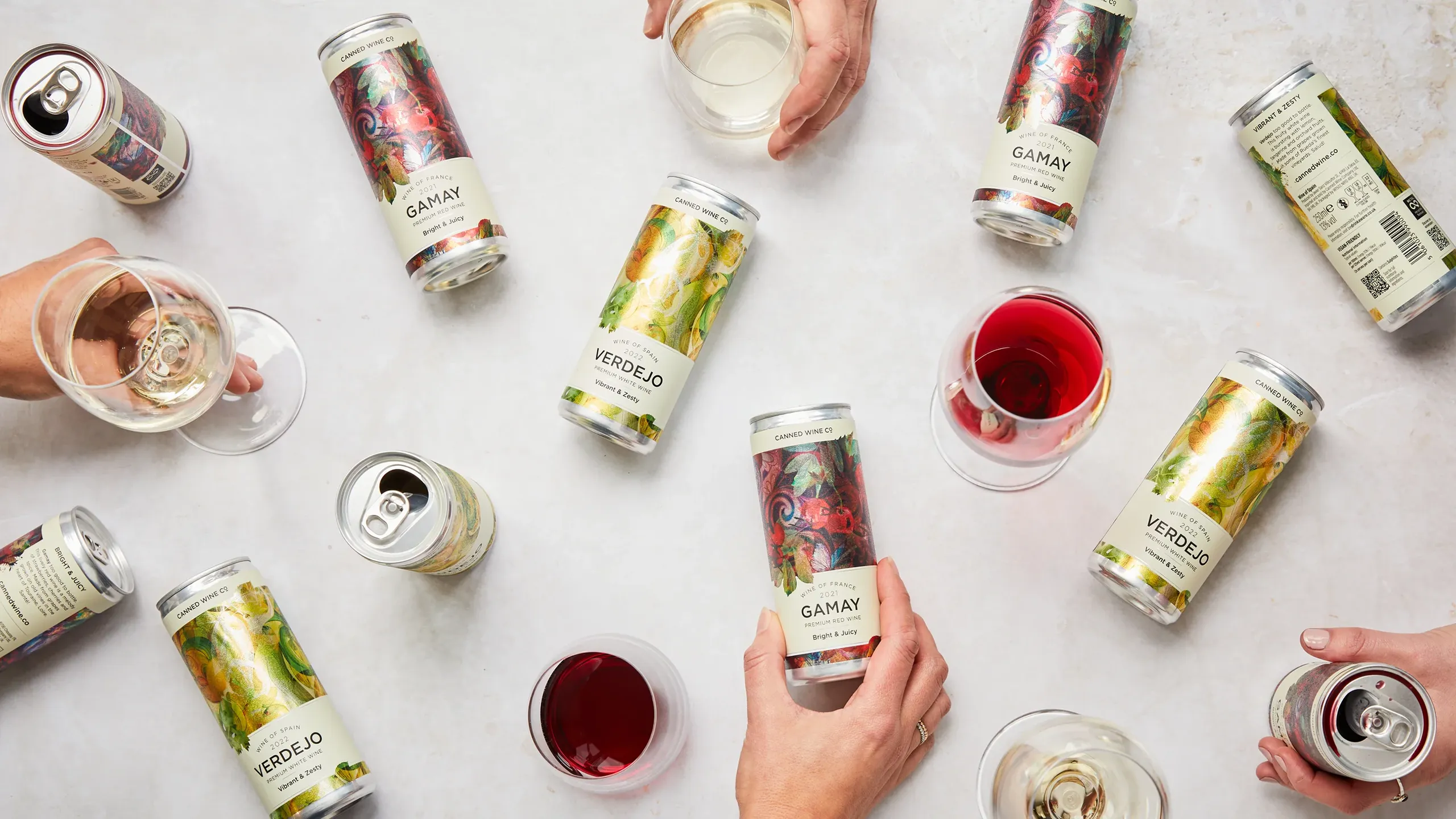Canned Wine Group’s Buyer and Chief Commercial Officer Ben Franks discusses our new Copper Crew KeyKegs and the sustainability challenges around launching wine on tap.
Our experience as one of the UK’s leading alt format suppliers to the on-trade puts us in a unique place when it comes to innovation. While canned wines have done an exceptional job at eliminating wine waste and increasing the quality of wine and experience at theatres, cinemas, stadiums, taprooms, cafés and quick service restaurants, it misses a key group segment: pubs and restaurants.
Customers visiting pubs and restaurants have an increasing interest in quality, provenance and sustainability, but canned wine doesn’t always fit the customer and cultural expectations of sharing wines with friends in a pub or restaurant. We had to find another way to eliminate wine waste and increase the quality and range of wines in this sector. That’s where wine on tap comes in: a way to serve glasses, carafes or full bottle serves with quality expectations adjacent to quality draught beer – because the two co-exist next to one another, front and centre on the bar. We decided that for quality, shelf life and the practical rollout of this solution, KeyKeg is the best packaging partner to launch with.
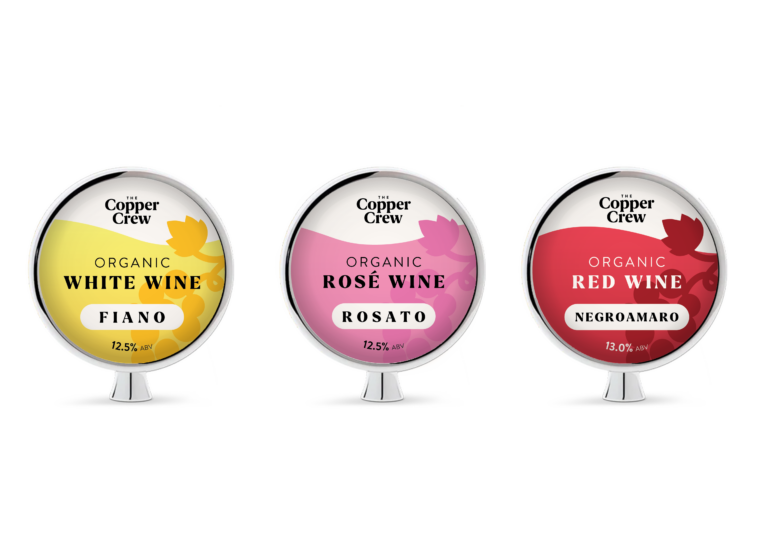
These cylinder 20L plastic kegs are light, easy to install and protect the quality of our wines that we’ve worked so hard to source for our cans. Effectively ‘big cans’, the open goal in hospitality is to deliver a house serve with as little wastage as possible that’s as recyclable as possible and protects customers’ gross margins in light of EPR and the increasing cost of living. For these reasons we launched our first KeyKegs with The Copper Crew, our crowd-pleasing and delicious Italian wine range.
According to the manufacturer of KeyKeg, 86% of the keg is recyclable, while the rest is still single use and one way. Innovation is focused on trying to increase this, but there’s another, more pragmatic challenge – how you recycle it in the first place. KeyKegs need to be depressurised and taken apart to separate the various plastics (from the outer PET to the inflatable bag). Few on-trade sites will be doing this, so an important part of our job as a supplier is to offer the education and training to encourage these recycling rates.
Ultimately it would be great to move to reusable kegs, but with cellar contracts dominated by beer companies rarely prioritising wine operations, there’s vast infrastructure improvements that must come first. We can leverage these at scale, so our aim is to drive the pick-up of wine on tap with KeyKegs to a volume where we can leverage real change in the market. This would make bulk wine management, drawing down and filling, distribution and – most vitally – collection and cleaning to be viable, paving the way for reusable steel kegs. Reusable kegs also require gas, which is expensive and in limited supply, whereas KeyKegs can use Lindrs and take advantage of simple air, available in abundance. That’s partly why KeyKeg is a great vessel to promote as a stepping stone towards a more circular economy for wine on tap.
KeyKeg currently reuse 53% of its KeyKeg materials for future KeyKeg productions –this only occurs if the KeyKegs make it back to them. We’re going to be working with our distributors to promote this and encourage more circularity, which in turn helps KeyKeg push up their reused content from 53% to their short term target of 62%, raising the % goal each year. It will also start to lay the blueprints for us to build a more circular economy and infrastructure for wine on tap in the UK.
KeyKegs are also lighter than reusable steel kegs, with a pallet carrying 40 KeyKegs weighing around 860kg versus a pallet of steel kegs that would weight 1260kg. If you were to transport a pallet of steel kegs from our warehouse in Leeds to Bath, it would emit 25.14kg of carbon, whereas the KeyKegs would emit 36.5% less carbon with 15.96kg. As KeyKegs weigh in at 960g, they are one of the lightest vessels for wine on the market, relative to volume. In fact, a KeyKeg is 86.1% of the equivalent volume delivered in our single serve aluminium cans, making them an even lighter option per litre – a vital metric in the wake of EPR as plastics are liable for a premium on a weight basis. Nevertheless, venues will be commercially better off in wastage fees and taxes using KeyKeg than glass bottles.
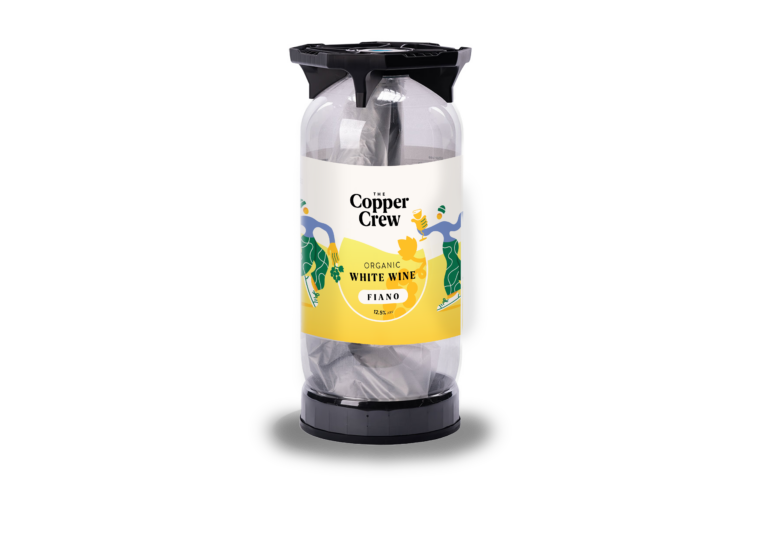
Wine wastage, or liquid waste, on KeyKegs is variable, but a busy bar that implements our kegs as the house wine could have zero liquid waste on the line thanks to a quick rate of sale. That’s a huge saving versus the 1/3 of every bottle that’s thrown away by hospitality today. The downside is low volume output could mean wasting more wine when your venue has been closed, as you’ll need to pull the wine through the line to clean it ready for the next serve. So for those lower volume sites, the single serve can is still a better fit for eliminating liquid waste, and we will be focusing on installing wine on tap to high footfall, high demand venues.
All in all, a KeyKeg is not a perfect solution for carbon savings – not least for its single use parts. We know KeyKegs have challenges. However, in a market where every penny matters to hospitality and customer expectations for good quality wine have never been higher, offering our organic Italian Copper Crew range in KeyKeg is fixing a real problem: we’re delivering the more interesting wines that 3 in 4 customers demand1, while eliminating liquid waste and protecting gross profit. That’s exactly what our award-winning canned wines do. So say hello to our big cans and join us as we lead on the future for wine.
1Proof Analytics study commissioned by Canned Wine Group showed that 73% of consumers wanted more interesting wines by the glass.

